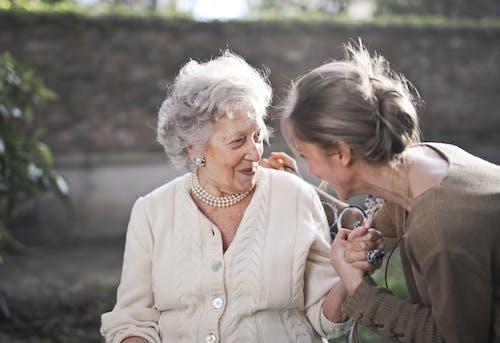As we age, our mental health can become increasingly fragile. Similarly, senior adults may face unique challenges that can lead to depression, anxiety, and other mental health issues. Thankfully, you can do many things to help improve a senior adult’s mental health. With that said, let’s go through some tips that can help improve mental health in old adults. But before that, let’s identify some causes of mental health issues:
What Causes Mental Health Issues And When To See A Professional?
Mental health issues can affect people of all ages, but they are particularly prevalent among senior adults. It’s estimated that around 20% of Americans over 55 have a mental illness. Some of the causes of mental health problems may result from the following:
- Social isolation or loneliness
- Encountering racism-related prejudice and stigma
- Debt
- Bereavement (losing a loved one)
- Severe or protracted stress
- Having a persistent physical health issue
- Medical expenses, along with other costs of living
- Being dependent on others
Seeking professional help is essential for regaining balance and stability. They can help relieve stress and anxiety after a complete diagnosis of the root cause, counseling, and in some cases, proper medication. You can book an appointment with a psychiatrist, psychologist, or counselor. Make sure they hold a relevant degree or have completed masters in counseling online and have experience in dealing with old age patients.
A counselor can also provide guidance and advice on managing difficult situations or changes in life. It’s important to remember that seeking professional help is not a sign of weakness—it is an act of courage and strength that can lead to improved mental well-being.
Now that you know the causes of mental illness let’s move on to some suggestions for improving senior adults’ mental health.
- Include Exercise in Daily Routine
Exercise is essential for physical health, but it is also crucial for maintaining good mental health. Regular exercise can help improve mood, reduce stress and anxiety, and even help prevent cognitive decline in senior adults. Exercise doesn’t have to be strenuous or time-consuming to be beneficial. Regular walking or stretching can help older adults stay physically and mentally active. Additionally, engaging in group activities such as swimming, dancing, tai chi, or yoga can help seniors socialize and build relationships. Ultimately, physical activity can help senior adults feel better about themselves.
2. Indulge in New Activities to Stimulate the Mind
For senior adults, engaging in activities can help boost their mental health. New activities can bring a sense of enjoyment, purpose, and challenge. It can help to improve cognitive functioning, mental well-being, and memory.
There are plenty of activities that seniors can do to stimulate their minds. Some ideas include playing chess, crosswords, and card games; learning a new skill such as cooking or knitting; joining a book club; or taking up a hobby such as gardening or painting. These activities require concentration and focus and can provide a sense of accomplishment.
Activities involving interaction with others can also benefit old age people. Joining a club or volunteering at a local organization can foster social connections, which are essential for mental health.
By engaging in activities stimulating their minds, seniors can experience greater mental well-being and improved cognitive functioning. Try introducing a few new activities into their life and see how they affect their mental health.
3. Connect with Others/Socialize
Connecting or socializing with the right people every once in a while is essential. Human interaction and companionship can go a long way in boosting mental health. Making sure seniors have regular contact with friends and family is vital. It could involve meeting up for lunch or coffee or simply talking on the phone. Social media can also be a great way to connect with others while maintaining social distancing if needed. They can also join online forums that discuss topics they are interested in or video call friends and family.
Old-age people can also consider joining local senior groups or social clubs to socialize. They can connect with people of the same age who may share the same interests. By doing so, they will have friends to hang out with and enjoy little things together.
Adopt a Pet
Pets can provide companionship, unconditional love, and joy. Adopting a pet is a great way to boost mental health in senior adults. Studies have found that pet owners have lower levels of stress, anxiety, and depression.
Caring for a pet can give seniors a sense of purpose and help them stay active. Pet ownership can also increase social interaction when taking their pet for a walk.
Besides, seniors may find a new friend in their pet, which may help reduce feelings of loneliness and isolation. It is suggested to adopt a pet with the right size, age, and energy level that can fit your lifestyle.
If you’re interested in adopting a pet, you can visit a local animal shelter or rescue organization. These places often offer senior pet adoption programs. They can match you with the perfect pet and provide resources for complete pet care. You can also check with local veterinarians for recommendations on reputable shelters or rescue organizations.
Adopting a pet can be an excellent addition at an old age and can help boost mental health.
Get Enough Sleep
Getting enough sleep is vital to maintaining mental health, particularly for senior adults. According to the National Institute on Aging, seniors need 7-9 hours of sleep every night. Insufficient sleep can lead to depression, irritability, and difficulty concentrating, among other issues. To ensure adequate sleep, create a comfortable environment in the bedroom by keeping it dark and cool. Try to go to bed at the same time each night and avoid caffeine or alcohol late in the day. It is suggested to consult a doctor about potential solutions if they have trouble falling asleep. If they don’t sleep enough throughout the day, they will be exhausted and restless.
Conclusion
Following the tips above, seniors can maintain or improve their mental health and well-being. Senior adults can boost their mental health by regular exercise, learning new activities, engaging in social activities, setting realistic goals, socializing, getting enough sleep, and even adopting a pet. Old age people should seek professional help to ensure their mental health needs are met. Mental health is something that should be taken seriously and cared for regularly. Also, let them know you are always available and are all ears.





